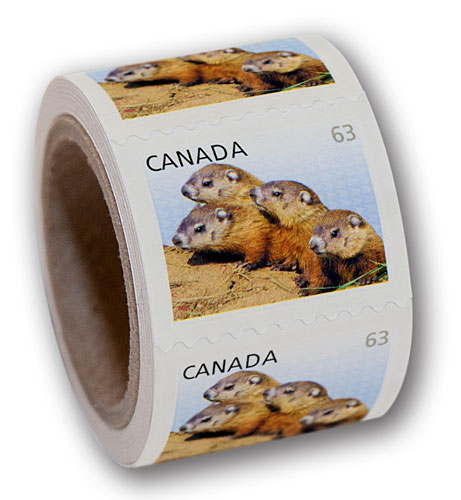On today’s date in 1956, Wiarton, Ont.’s Mac Mackenzie published a press release inviting people to his hometown for what would become the country’s first “Groundhog Day” party.
Although the tradition of using a groundhog to forecast the weather dates back to the 19th century, Mackenzie was seeking an excuse to throw a party. After a Toronto Star reporter arrived and asked about the groundhog’s whereabouts, Mackenzie threw his wife’s fur hat into the snow so the reporter could take a picture.
“(The reporter) had to have a story,” explains a 2015 story published by CBC News. “He couldn’t go back to Toronto without something. So we tossed a fur hat with a button on it into the snow. We said it was a groundhog, and the photo ran in the Star.”
MODERN GROUNDHOG DAY FESTIVAL
The annual Wiarton Willie Groundhog Day festival typically attracts major crowds to the town, which is located off Georgian Bay on the Bruce Peninsula.
In 1999, the festival became mired in a scandal as organizers discovered – only a few days before the big event – that Willie had died during his winter hibernation. They put what they claimed to be Willie’s dead body, clutching a carrot, in a small casket with one-cent coins over his eyes. The scandal erupted when it was discovered Willie’s body was so badly decomposed it could not be shown to the public; instead, organizers put a stuffed version in the casket.
For the next five years, a replacement, “Wee Willie,” fulfilled the role until he was replaced by “Wee Willie 2.”
In 2021, the 65th year of the tradition, organizers hosted what they called a “live(ish)” event, in which Wiarton Willie predicted an early spring this year. The Groundhog Day forecast was officially announced at 8:07 a.m. from Wiarton; however, this year’s event was entirely online with no live crowds or fireworks.
2013 GROUNDHOG STAMP
In 2013, Canada Post released four definitives depicting young animals, including the groundhog, that are indigenous to Canada.
Created by designers Monique Dufour and Sophie Lafortune, the stamps feature the same visual stylings of the “Baby Wildlife” series’ previous two editions: the animal’s image is set against a mostly white background with a hint of their natural habitat revealed.
“Animals stamps are always popular—and focusing on young animals brings in the cuteness factor that we hope gives both collectors and mailers a smile when they see these stamps,” said Danielle Trottier, then-manager of stamp design at Canada Post.
As in previous years, the four definitives (paying the domestic, U.S., international and oversized mail rates) were issued in both booklets and coils, the latter of which included coils of four and 10 stamps.
The set’s official first-day cover was serviced with a cancellation from Ancaster, Ont., where the woodchucks on the domestic stamp were photographed.

